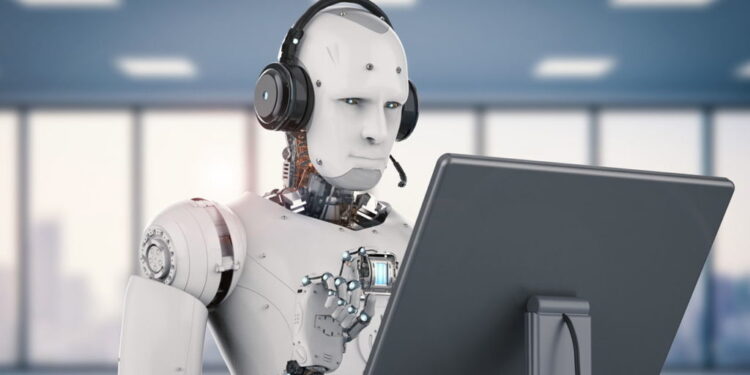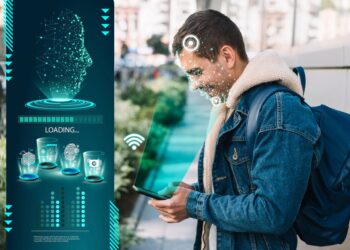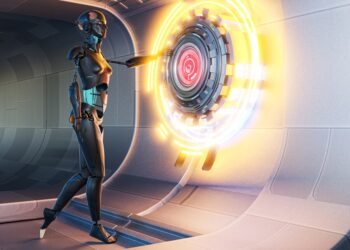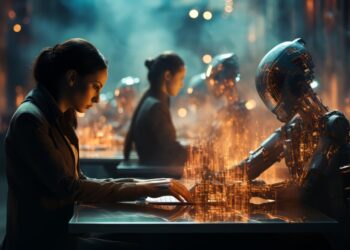Today, more than ever before, our economy is driven by the services sector. This is especially true in the U.S., which has experienced a steady rise in the service economy over the past few decades.
In other words, more and more of our economy revolves around services like restaurants, hotels, and maid services. When this happens, entire industries are affected. And that means that there are going to be consequences for those who aren’t able to keep up with these changes.
Case in point: The rapid adoption of artificial intelligence has created a situation where robots have begun taking our jobs faster than ever before. So much so that some have already begun wondering if we have entered into an era where machines take on human tasks instead of humans taking on tasks within other industries.

What is Artificial Intelligence?
Artificial intelligence (AI) is the science of making machines behave like humans. It allows computers to understand human language and perform tasks that a person would. AI is already being used in industries like healthcare and banking, but the use of AI is rapidly expanding.
AI is particularly useful in things like facial recognition, natural language processing, and pattern recognition. It’s why AI is taking over jobs like driverless cars and healthcare, where it can make our lives safer and easier. It’s also why AI is quickly becoming a key player in the world of robots.
How Robots are Taking Our Jobs
Over the last century, humans have been replacing workers with robots. This has been happening for a variety of reasons, including improvements in technology and the fact that we simply don’t need as many workers as we used to. In the last few years, however, AI has taken the process to the next level. AI is allowing robots to perform tasks that were once the domain of humans.
This trend has led to significant changes in the workplace, including:
- Firms put more emphasis on automation, which leads to fewer jobs.
- Machines take on many jobs, like drivers and cashiers, that were once performed by humans.
- A rise in the number of people who can’t find full-time employment.
- An increase in the number of people who are working part-time.
How Will Artificial Intelligence Affect Jobs?
Artificial intelligence is poised to have a huge impact on the economy, but it’s not clear exactly how. Some experts believe that artificial intelligence will have a major impact on the workforce and destroy millions of jobs. Others believe that it will have a more modest effect and that it will actually increase the amount of employment in certain industries.
It’s difficult to say for sure, but it’s likely that AI will have both of these impacts. In any case, it’s clear that AI is already having an impact on some industries. For example, companies are increasingly using AI to optimize their operations. This means that they’re using AI to manage their inventory.
They can use AI to optimize their shipping routes, too. This can help companies cut costs and increase their efficiency. In other industries, AI is helping drive growth. This is especially true in healthcare, where AI is helping to improve healthcare systems. AI can also be used to help manage patient records, helping to improve the healthcare system even further.
The Future of Artificial Intelligence and Robots in the Workplace
Artificial intelligence will likely have a major impact on the workforce and on job creation. But it will also have a major impact on the types of jobs that humans do as well. This will be especially true in fields like healthcare, where AI can be used to help humans do their jobs better.
Robots will likely play a major role in the future of artificial intelligence as well. This is large because it’s necessary for AI to function. AI can’t perform most of its tasks without robots performing specific tasks. This means that it’s likely that we’ll see a significant increase in the use of robots in the workplace. At the same time, the use of AI will likely continue to increase as well.
Why Is AI Important for the Economy?
That last question points to a key reason why artificial intelligence will have a major impact on the economy. It’s important for AI to take root because it could be the key to helping the country become more prosperous.
AI is poised to play a major role in helping the U.S. economy become more efficient. It can do this by helping companies cut costs and increase their competitiveness. It can also help companies become more productive, which could have major implications for job creation.
It can also help the country become more prosperous by automating key economic functions. AI can help to automate essential parts of the economy. It can also be used to help manage essential resources, like energy and food supplies.
Conclusion
Artificial intelligence is quickly becoming a major presence in the workforce. It’s also helping to transform the economy, making it more efficient and productive. If you’re worried about how AI will affect your job, you should keep in mind that it’s likely to have a positive impact on the economy.
















